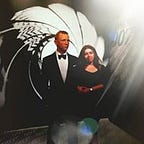Richard Wolin “Critical Theory and the Dialectic of Rationalism” and Roy Bhaskar “Transcendental Realism and the Problem of Naturalism”
Ontology- minded reality as a specification of conceptualizing appears transitive or intransitive from the standpoint of critical theory’s view. Meanwhile in terms of reality dilemma, concreteness provides to reproduce the existing reality. Also, reality still in its own holism through the text. Besides leaving the ontological status of concept of reality, hence one difference between transcendental realism and idealism is that, for transcendental realism, what is presupposed in any given scientific activity is at once a possible object of scientific explanation; so that what is apodictically demonstrable is also scientifically comprehensible; that is, what is synthetic a priori is also (contingently) knowable a posteriori.[1] The process of knowledge and forms of it can derive from the inner structure of reality. Can reality censurable? If reason means shaping life according to men’s free decision on the basis of their knowledge, the demand for reason henceforth means the creation of a social organization in which individuals collectively regulate lives in accordance with their needs. [2] Furthermore, there is a relation and a link between the concept of real- actual and empirical. The theoretical activity of humans, like the practical, is not the independent knowledge of a fixed object, but a product of ever-changing reality. So, critical theory mediates between various domains of reality, between parts and whole, between appearance and essence, and between theory and practice. Can we say that critical theory take into consideration criticism in terms of critical realism or can we say that critical theory positioned as an eclectic sphere in materialism and Hegelian methodology? The main argument of the text is that examine the social belongs into the materialistic ground. Also, it focused on the discussion on economy both social culture and economy itself. The mind is the main parameter in terms of critical theory and research made by mind for this theory. In this context, can we say that dialectic of rationalism depends on mind or beyond it? In a similar manner, the relationship between nature and social can we say that naturalism or positivist- emprisist method has a reductive approach? Critical theory and hence the text can be examined with “eclecticism”. The rationale for selecting eclecticism as a theme is its current situation in main stream of critical theory. Critical theory is often associated with the so-called "Frankfurt School," a term which refers to the work of members of the Institut fur Sozialforschung (Institute for Social Research). Thus, critical theory’s argument can be seen as eclectic form.
